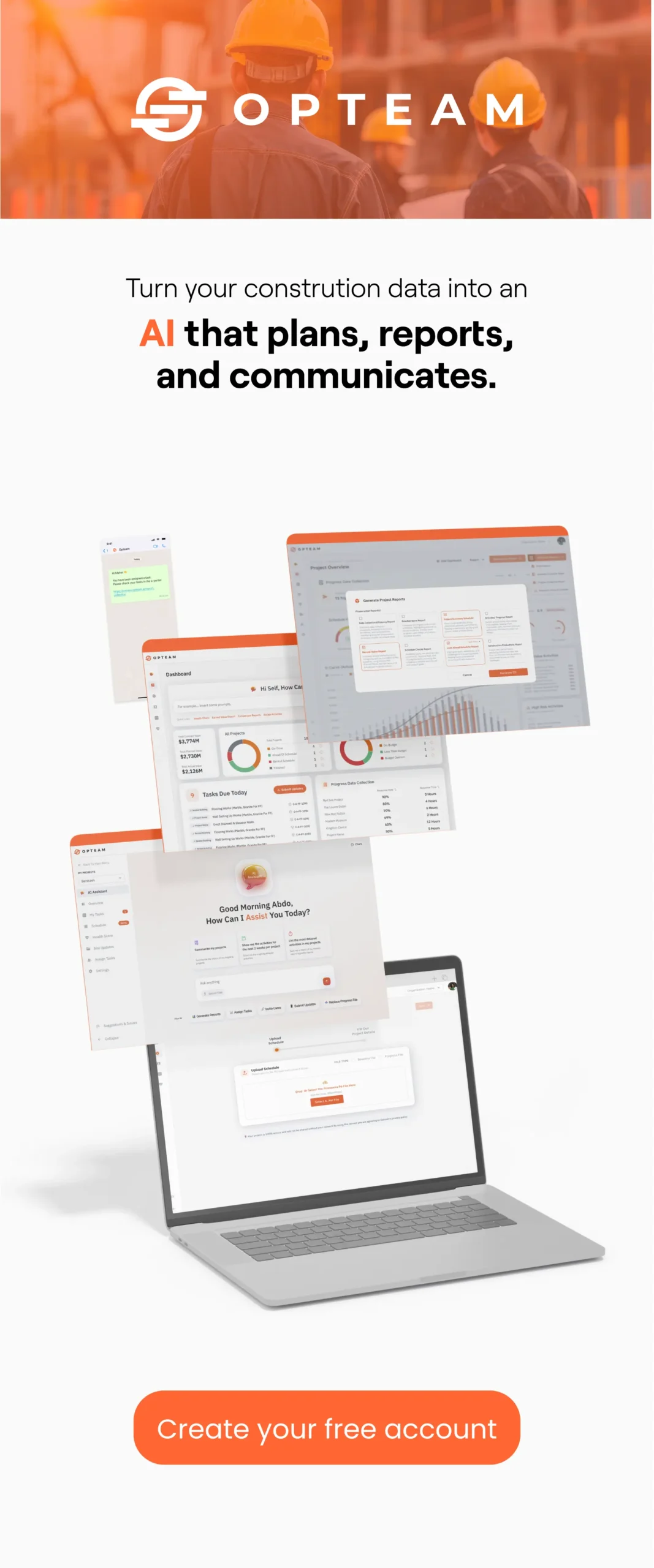Cost reporting in construction can often feel like a daunting task, fraught with complexities that lead to inaccuracies and inefficiencies.
Without effective cost reporting, project managers face unpredictable expenses, budget overruns, and financial strain that can jeopardize the success of their projects. The lack of clarity in financial tracking makes it challenging to maintain control over project costs, potentially leading to costly delays and mismanagement.
Harnessing advanced cost reporting tools in construction can transform how you manage your projects, offering precise insights and streamlined financial tracking.
By adopting effective cost reporting practices, you can ensure that your projects stay within budget, minimize financial risks, and enhance overall project efficiency.
Ready to learn how? Continue reading to discover practical strategies and solutions for mastering cost reporting and keeping your projects on track.
What is Cost Reporting in Construction?
Cost reporting in construction is the process of documenting and analyzing all financial aspects of a construction project. This includes tracking expenses such as labor, materials, equipment, and subcontractor costs to ensure they align with the project’s budget.
Effective cost reporting provides a clear picture of where money is being spent, identifies potential financial issues early, and helps in making informed decisions to control costs and manage resources efficiently.
In addition to tracking actual costs, cost reporting often involves forecasting future expenses and comparing them against the project’s budgeted figures.
This allows project managers to identify variances, understand the reasons behind them, and take corrective actions as needed.
Accurate and timely cost reporting is crucial for maintaining financial control, ensuring project profitability, and delivering successful outcomes within the allocated budget.
Different Types of Costs in Construction Projects
| Cost Type | Description |
|---|---|
| Direct Costs | Costs directly associated with the construction work, such as materials, labor, and equipment. |
| Indirect Costs | Costs not directly tied to specific tasks but necessary for the project, like utilities, administrative expenses, and insurance. |
| Fixed Costs | Costs that do not change with the level of work performed, such as project management salaries and site overhead. |
| Variable Costs | Costs that fluctuate based on project activity, including materials and subcontractor fees. |
| Contingency Costs | Funds set aside for unexpected expenses or risks that may arise during the project. |
| Overhead Costs | General expenses required to support the project but not directly attributed to specific tasks, such as office rent and utilities. |
Common Challenges with Construction Cost Reporting
Here are some common challenges with cost reporting in construction:
- Inaccurate Data Entry: Mistakes in recording expenses can lead to incorrect cost reports, making it difficult to track and control project finances effectively.
- Delayed Reporting: Late submission of cost data can result in outdated reports, hindering timely decision-making and causing potential budget overruns.
- Complexity in Tracking Costs: Managing and categorizing various types of costs, such as direct, indirect, and overhead, can be overwhelming, especially in large projects with multiple stakeholders.
- Lack of Integration: When cost reporting systems are not integrated with other project management tools, it can create gaps in data, leading to incomplete or inconsistent reporting.
- Communication Issues: Poor communication between the project team and financial departments can result in misaligned expectations and discrepancies in cost reporting. Proper team training through high level construction courses can help overcoming those issues.
- Unforeseen Expenses: Unexpected costs can disrupt budgets and are often difficult to account for accurately in standard cost reports.
- Budget Variances: Inaccurate forecasting or unanticipated changes in project scope can lead to significant variances between estimated and actual costs.
How Technology Helped Tackling These Challenges
Technology has significantly improved the accuracy of cost reporting in construction by automating data entry and reducing human error.
Modern software solutions allow for real-time tracking of expenses, ensuring that all costs are recorded correctly and consistently.
This automation helps project managers maintain accurate financial records, minimizing the risk of discrepancies and ensuring that reports reflect the true financial state of the project.
In addition to improving accuracy, technology has also addressed the challenge of delayed reporting. With cloud-based platforms and mobile applications, project teams can input and access cost data instantly from any location.
This real-time access allows for more frequent and timely updates, enabling project managers to make informed decisions quickly.
By integrating cost reporting tools with other project management systems, technology ensures that all relevant data is consolidated in one place, streamlining the reporting process and reducing the likelihood of incomplete or outdated information.
Furthermore, technology has enhanced communication and collaboration between different departments involved in construction projects. Integrated software solutions facilitate the sharing of cost data between project managers, accountants, and other stakeholders, ensuring that everyone is on the same page.
Advanced forecasting and budgeting tools also allow for better anticipation of unforeseen expenses and potential budget variances, helping teams to prepare for and manage these challenges effectively.
Overall, the use of technology in cost reporting has led to more efficient, transparent, and accurate financial management in construction projects.
Track Your Construction Project with Opteam
Tracking your construction project has never been easier with Opteam. Our software provides real-time insights into every aspect of your project, from costs to progress, ensuring you stay on budget and on schedule.
With Opteam, you can monitor expenses, forecast potential risks, and make informed decisions quickly, all from one intuitive platform. Streamline your project management and achieve better results in your projects.
Read more:

